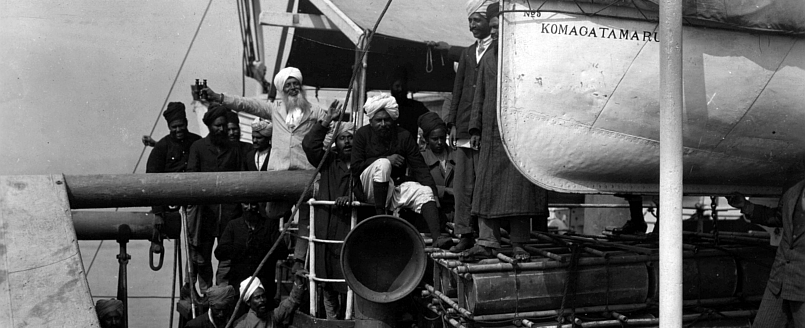
Remembering the Komagata Maru 100 Years Later
Today, May 23rd marks the 100th anniversary of the Komagata Maru ship’s arrival in Vancouver’s harbor.
It was a dark, sad and unfortunate period in Canada’s history.
In the early 1900s, Canada was not a welcoming place for new immigrants and visitors who were not from Europe. Racist and exclusionary policies discriminated against people coming from India, China, Japan and other parts of the world.
The Komagata Maru carried 376 passengers from the Punjab region of British India, all with dreams of settling and building new lives in Canada. But when they arrived in Burrard Inlet, they were denied entry. Instead, they stayed on the ship for two months, starving, and were shown no compassion by the government of that time.
Only 24 passengers were allowed to disembark in Vancouver. On July 23, 1914, the remaining passengers were forced to return to India, and many were persecuted and some killed by the British India government.
This is a critical point in Canadian history and the Indian independence movement for freedom from British rule.

My grandfather, Bishen S. Dhillon (left) with Labh S. Dhillon, Ra Singh and a friend, in California.
I have a deep personal connection to the legacies of the early Indian immigrants and the Komagata Maru passengers. Between 1905 and 1907 my maternal grandfather Bishen S. Dhillon and nearly 20 other men from his village Pandori Ladha Singh and surrounding villages arrived in British Columbia and California. They faced legalized discrimination. Many of them resolved to free India from British rule while seeking justice and equality in Canada. My relatives Naranjan S. Dhillon and Pratap S. Bains left Vancouver in 1913 for India and joined the freedom movement. The courageous Komagata Maru passengers directly challenged the Canadian “Continuous Passage” law which was intended to bar people from British India. It took 37 long years to free India in 1947 and to re-gain the right to vote for Indian immigrants in Canada.
The story of the Komagata Maru passengers lives on. Last September, I had the honour of visiting the Komagata Maru Memorial at Harbour Green Park with Anna Hazare, the internationally renowned Indian leader combatting corruption, promoting government transparency and accountability, and protecting human rights. He became visibly emotional as he read names of some of the passengers listed on the monument and softly said, “I did not know their story fully. They were real freedom fighters for India and for Canada.”
Today, as we remember here in Vancouver and other parts of the country, it is important for all of us to focus on creating a Canada where everyone is accepted regardless of where they come from. As Canadians, we need to be aware of our history so we can move forward, and together building an inclusive, caring and compassionate Canada.
Today, 100 years later, we remember, honour and respect the voyage of the Komagata Maru.



